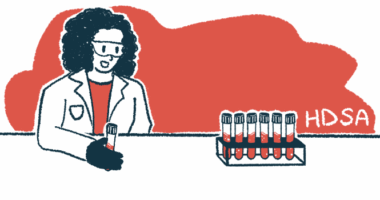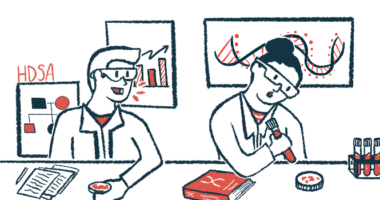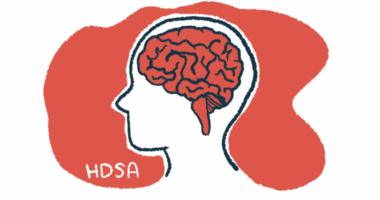On Rare Disease Day, Our Communities Unite as One

Whenever I share that my wife and daughter are both gene-positive for Huntington’s disease (HD), I usually have to explain what the terminal illness is — “Imagine combining Alzheimer’s, Parkinson’s, and ALS in one disease” — and what will happen to them if a cure isn’t found in their lifetimes — “They will suffer a lot.”
Shortly after her diagnosis four years ago, my wife, Jill, decided to stop telling people she doesn’t know very well that she has HD. I’ve mentioned before that I am more open about HD than she is. I don’t mind answering questions, as I feel it’s important to educate people.
Jill is more reserved and doesn’t have the energy to deal with the awkwardness that often comes from explaining HD to others. It’s difficult for her to describe her illness to people who haven’t heard of it, yet those who are familiar with it will often downplay its severity because they don’t know what to say. Jill then feels the need to make the other person feel more comfortable.
It frustrates her to know that one day, people will likely stare because they can’t figure out why she is twitching or making noises. Most people we know don’t understand Huntington’s, so the general population probably won’t, either.
When I asked her how she wished people would respond to her rare disease, Jill didn’t hesitate. When she talks about her diagnosis, she wants people to say, “I am sorry to hear that. If there’s anything I can do to help, please let me know.”
It’s a simple wish, but it would mean the world to her.
Today is Rare Disease Day. On this day, the 300 million people worldwide who suffer from more than 7,000 rare diseases come together as one.
The day unites all rare disease communities. Someone with cystic fibrosis can stand next to someone with Huntington’s disease and speak out as one.
That’s what Rare Disease Day is all about: joining together as one voice to educate and advocate for all of those affected. Our suffering may not be fair, but we are united in asking for equity in healthcare and seeking accelerated approvals of new therapies.
Although this day only comes around once a year, we don’t have to wait to increase awareness, raise money, educate people, or provide emotional support. We can and must make a difference year-round. One day simply isn’t enough for the rare disease community to overcome the physical, financial, and emotional issues we face.
Note: Huntington’s Disease News is strictly a news and information website about the disease. It does not provide medical advice, diagnosis, or treatment. This content is not intended to be a substitute for professional medical advice, diagnosis, or treatment. Always seek the advice of your physician or other qualified health provider with any questions you may have regarding a medical condition. Never disregard professional medical advice or delay in seeking it because of something you have read on this website. The opinions expressed in this column are not those of Huntington’s Disease News or its parent company, Bionews, and are intended to spark discussion about issues pertaining to Huntington’s disease.








Richard Poulin
Over time I was able to talk more about AADC, but I also understand the frustrations that come along with having to explain it as Jill mentioned. I have crafted a few elevator pitches for different scenarios and also match my mood on that day.
Today and every day, my wife and daughter also stand with your family!
Carlos Briceño
Richard,
I can imagine how difficult AADC can be to explain, not just because of the medical aspect of it but because of the emotional toll it takes on the person who has it as well as I their loved ones. I wish that there were no conditions that needed explained. Hopefully, one day there will be cures for rare diseases; that’s why Rare Disease day is so important.
You and your family will be in my thoughts and prayers.